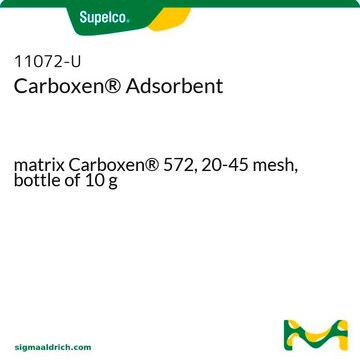W242713
Ethyl butyrate
natural, ≥98%, FCC, FG
Synonym(s):
Butyric acid ethyl ester
About This Item
Recommended Products
grade
FG
Fragrance grade
Halal
Kosher
natural
Quality Level
Agency
follows IFRA guidelines
meets purity specifications of JECFA
reg. compliance
EU Regulation 1223/2009
EU Regulation 1334/2008 & 178/2002
FCC
FDA 21 CFR 117
vapor density
4 (vs air)
vapor pressure
15.5 mmHg ( 25 °C)
Assay
≥98%
autoignition temp.
865 °F
greener alternative product characteristics
Less Hazardous Chemical Syntheses
Use of Renewable Feedstocks
Learn more about the Principles of Green Chemistry.
refractive index
n20/D 1.392 (lit.)
bp
120 °C (lit.)
mp
−93 °C (lit.)
density
0.875 g/mL at 25 °C (lit.)
application(s)
flavors and fragrances
Documentation
see Safety & Documentation for available documents
food allergen
no known allergens
fragrance allergen
no known allergens
greener alternative category
Organoleptic
ethereal; fruity; pineapple; sweet
SMILES string
CCCC(=O)OCC
InChI
1S/C6H12O2/c1-3-5-6(7)8-4-2/h3-5H2,1-2H3
InChI key
OBNCKNCVKJNDBV-UHFFFAOYSA-N
Looking for similar products? Visit Product Comparison Guide
General description
Application
- Tracer aroma compound transfer from a solid and complex-flavored food matrix packed in treated papers or plastic packaging film.: Investigates the transfer dynamics of aroma compounds from food products, essential for optimizing food packaging materials to preserve flavor integrity (Dury-Brun C et al., 2007).
Signal Word
Warning
Hazard Statements
Precautionary Statements
Hazard Classifications
Flam. Liq. 3
Storage Class Code
3 - Flammable liquids
WGK
WGK 1
Flash Point(F)
78.8 °F - closed cup
Flash Point(C)
26 °C - closed cup
Personal Protective Equipment
Choose from one of the most recent versions:
Already Own This Product?
Find documentation for the products that you have recently purchased in the Document Library.
Customers Also Viewed
Our team of scientists has experience in all areas of research including Life Science, Material Science, Chemical Synthesis, Chromatography, Analytical and many others.
Contact Technical Service















